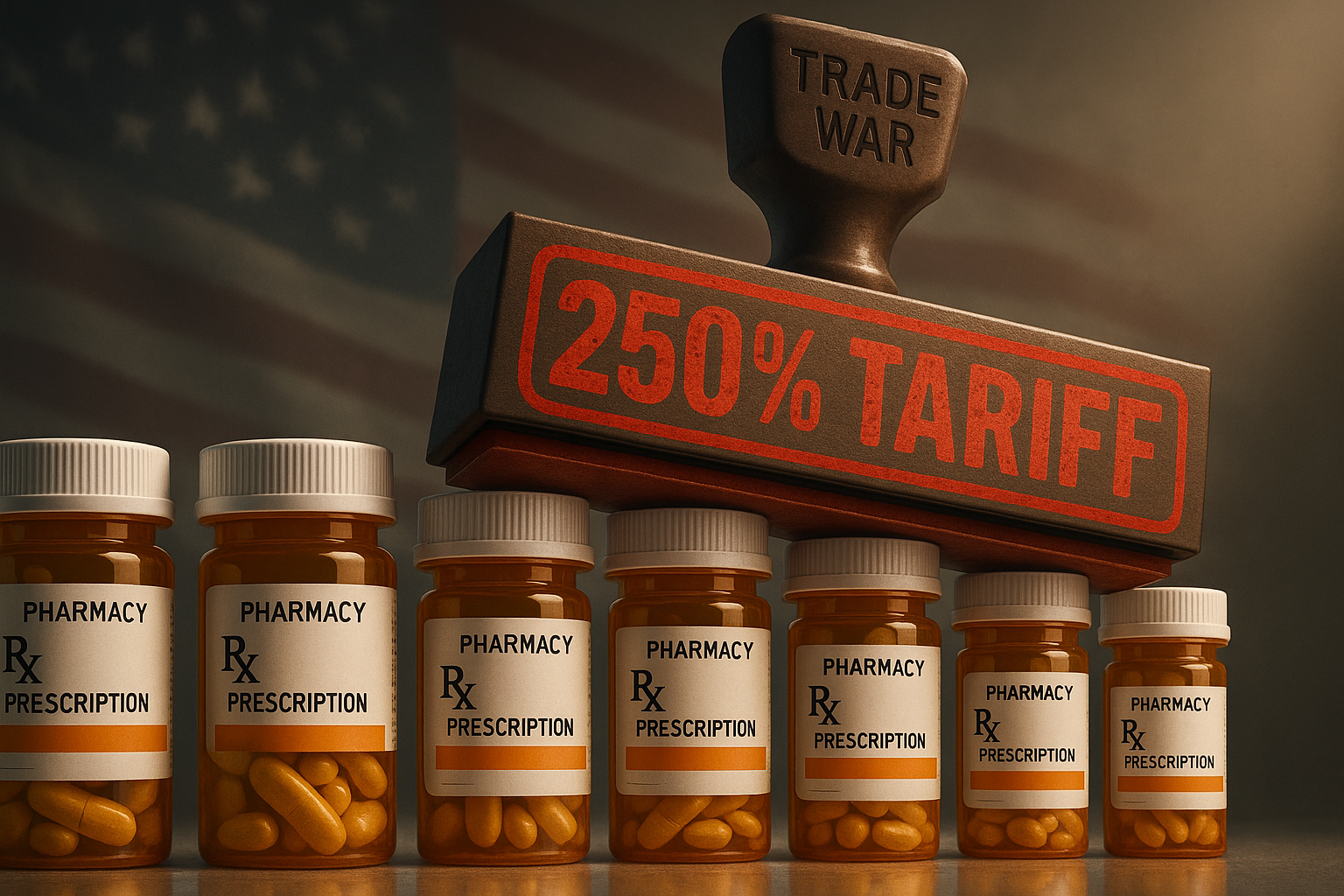Former President Donald Trump just dropped what might be the mother of all tariff bombs on the pharmaceutical industry. At a campaign stop in North Carolina this week, he threatened to slap foreign drugmakers with tariffs of up to—wait for it—250 percent.
Not 25 percent. Two hundred and fifty.
The pharmaceutical executives I've spoken with (off the record, naturally) are understandably rattled. One industry veteran described it as "economic carpet bombing" rather than targeted trade policy.
"We're going to put tariffs on countries that take advantage of the United States," Trump told his supporters, his voice rising with each word. "And that includes pharmaceuticals... at a certain point it will be 250%."
Look, I've covered trade policy since Trump's first administration, and this represents a dramatic escalation of his tariff playbook. His first-term tariffs—mostly in the 10-25% range—were disruptive but absorbable. At 250%, we're not talking about tariffs anymore. We're talking about de facto bans dressed up in tax clothing.
The timing couldn't be more problematic for the industry. Pharma supply chains stretch across continents like a global game of Operation (sorry, couldn't resist the metaphor). From Puerto Rico to Ireland to Singapore, drug companies have spent decades building specialized manufacturing networks that can't simply be uprooted overnight.
And here's the thing that makes pharmaceuticals different from, say, steel or washing machines: regulatory complexity. You can't just switch production locations without jumping through countless FDA hoops. These aren't sneakers we're talking about—they're cancer treatments and heart medications.
Who pays if these mega-tariffs become reality? That's where things get murky.
In normal industries, economic theory tells us consumers ultimately foot the bill for tariffs. But pharmaceuticals? Ha! The pricing already operates in a bizarre parallel universe where list prices, rebates, insurance coverage and actual patient costs have only a passing acquaintance with each other.
Would pharmaceutical companies pass these costs to insurers? To Medicare? Directly to patients? Some combination that would require advanced mathematics to calculate?
(I reached out to several health economists who basically threw up their hands when asked to model the potential impact.)
The politics here are... fascinating. Trump has identified a target that few Americans will rush to defend. The pharmaceutical industry remains deeply unpopular with voters across the political spectrum, especially after the opioid crisis and ongoing battles over drug pricing.
By threatening an unpopular industry, Trump gets to flex his protectionist muscles without immediate consumer backlash. Pretty shrewd, politically speaking.
For investors and industry players, uncertainty just became the word of the day. Companies with heavy exposure to international manufacturing—which is practically everyone—are undoubtedly running scenarios and dusting off contingency plans.
I spoke with one supply chain consultant who's been fielding panicked calls since Trump's announcement. "Companies are trying to figure out if this is a negotiating tactic or a genuine policy threat," she told me. "Either way, they need to prepare."
The winners in this scenario? Probably domestic contract manufacturers who could see a surge in business. The losers? That list is considerably longer.
What we're witnessing is the evolution of tariffs from targeted economic tools to comprehensive industry restructuring mechanisms. Whether this represents campaign bluster or actual policy intentions remains uncertain.
But one thing's for sure—the pharmaceutical industry just received a strong prescription for anxiety, with side effects including strategic planning migraines and investor palpitations. No doctor's note required.
